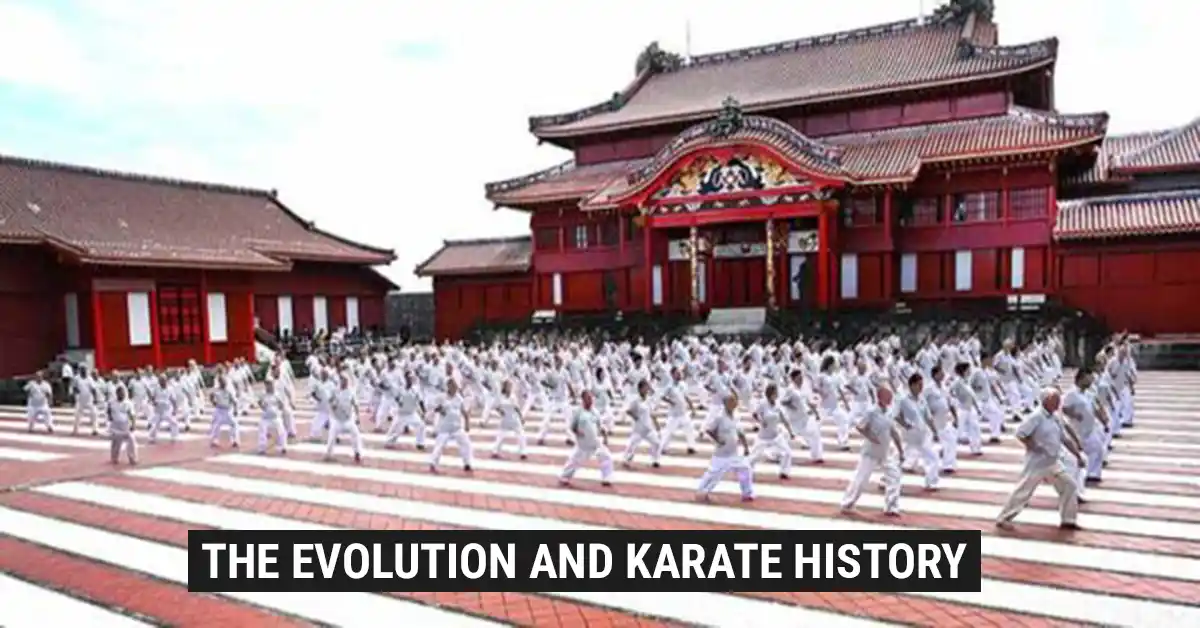Welcome To Nexa Gear

“The Evolution and Karate History :
From Ancient Origins to Modern Martial Art”
Introduction Karate (karate history), the Japanese martial art known for its striking techniques,
powerful kicks, and disciplined philosophy, has a rich and fascinating history that spans centuries.
This blog will delve into the evolution of karate, from its ancient roots in Okinawa to its global popularity
as a modern martial art. We will explore the key historical developments, influential figures, and the
philosophy that underpins this martial discipline.
Ancient Origins of Karate (Karate History),(Karate Origins),(karate background)
Karate’s history (karate history) can be traced back to the Ryukyu Kingdom, specifically Okinawa,
an island located between Japan and China. In the 14th century, Okinawa was a trade hub where
cultural exchanges between China and Japan took place. It was during this time that martial arts
from China, such as kung fu, began to influence the indigenous fighting techniques of Okinawa.
These early forms of karate were known as “te,” which means “hand” in Okinawan dialect.Development During the Ryukyu Kingdom Era (Karate History)
During the Ryukyu Kingdom era (15th to 19th centuries), the practice of te continued to evolve.
, it was kept mostly secret, with knowledge passed down through oral traditions and limited to
a select few. Okinawa’s geographical isolation and political instability during this time contributed
to the development of unique martial arts styles.
Influence of Chinese Martial Arts
Chinese martial arts, brought to Okinawa through trade
and cultural exchanges, played a significant role in shaping te into what we now recognize as
karate. Chinese techniques, philosophies, and forms were blended with the indigenous fighting
methods of Okinawa. This fusion gave birth to various early karate styles, such as Shuri-te,
Naha-te, and Tomari-te, named after the major cities in Okinawa. (karate origins)
Gichin Funakoshi and the Spread of Karate
The 20th century marked a pivotal period in the history of karate. Gichin Funakoshi, often
referred to as the “father of modern karate,” played a central role in introducing karate to
mainland Japan. Funakoshi’s teachings emphasized not only the physical aspects of the
martial art but also its philosophical underpinnings, including the development of character,
respect, and self-discipline.
Karate’s Global Expansion
Karate gained international recognition after World War II, as American servicemen
stationed in Japan brought the martial art back to the United States. Its popularity grew
rapidly, leading to the establishment of karate dojos (training halls) around the world.
Karate was also included as an Olympic sport, further solidifying its global presence.
Philosophy and Principles of Karate
Karate is not just about physical combat; it is also a way of life with deep-rooted
philosophical principles. These include the concepts of respect (for self and others),
humility, perseverance, and the continuous pursuit of self-improvement. The martial art’s
guiding philosophy is encapsulated in the “Dojo Kun” and the “Niju Kun,” which are sets
of ethical guidelines followed by karate practitioners.
Modern Karate Styles
Today, there are numerous styles and organizations within the world of karate. Some of
the most well-known styles include Shotokan, Goju-Ryu, Wado-Ryu, and Kyokushin.
Each style has its own unique techniques, forms (katas), and training methodsbut they all
share a common ancestry rooted in Okinawa.
Conclusion
The karate history is a testament to the resilience and adaptability of martial arts over the
centuries. From its humble origins as “te” in Okinawa to its global recognition and diverse
array of styles, karate has evolved into a respected and widely practiced martial art. Its
enduring philosophy of self-improvement, discipline, and respect continues to inspire
generations of practitioners worldwide.
As we reflect on its (karate history) history, we can appreciate how karate’s journey has shaped it
into both an effective means of self-defense and a path to personal growth and enlightenment.
Whether you are a seasoned practitioner or a curious beginner, karate offers a journey that goes
beyond physical techniques and leads to a deeper understanding of oneself and the world around us. (karate background)


